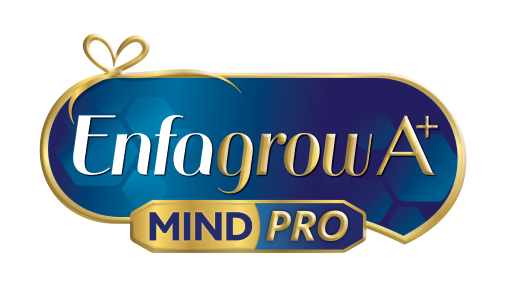
It is crucial to mind what you eat during your pregnancy, now that you are eating for two (or possibly more). Pregnancy nutrition is a very — if not the most — important aspect of your everyday life, as it helps you deal with the added demands on your bod as thye months march on. So making sure that you eat healthy for yourself and your developing baby is a must
The Importance of Pregnancy Nutrition
The basic principles of eating healthy doesn’t radically change with pregnancy. It only means that you and your developing baby will especially need an increased intake of pregnancy nutrition, which include[1] certain vitamins and minerals during this period.
Although you’ll need to eat at least 300 extra calories per day (roughly equivalent to a glass of skim milk and half a sandwich) to make sure the developing baby is nourished with a sufficient amount of pregnancy nutrition[2] inside your womb too, don’t overeat1. You might risk complicating your pregnancy and labour if you gain too much weight.
Also, your healthcare provider or midwife may prescribe additional supplements to ensure your pregnancy nutrition needs are met. Be sure to take supplements within the recommended amount of vitamins and minerals per day. This is because some vitamins, such as Vitamin A, can cause congenital disabilities at higher doses1. Refer to their advice as well when it comes to the everyday consumption of coffee and tea.
Pregnancy Nutrition: Mind the Vitamins and Minerals
Folate
Folate is also known as Vitamin B9, a pregnancy nutrition that helps in the development of the developing baby’s brain and spinal cord2. Folic acid (the synthetic form of folate) has also been shown to decrease the chances of premature birth in mothers2.
-
Foods rich in folate are fortified cereals and bread, dark green leafy vegetables, citrus fruits, and beans.
Iron
Iron is used in making hemoglobin in our blood, which then carries oxygen throughout our body2. Carrying another life in your womb doubles the needed amount of oxygen your blood needs to flow in your system. Hence, iron functions as another very vital mineral in pregnancy nutrition.
-
Foods rich in iron are lean red meat, poultry, dried beans, and peas
-
To help your body absorb more iron, drink more orange juice, and eat more broccoli, peppers, and strawberries1.
Calcium
Calcium is a pregnancy nutrition that helps in the building of stronger bones and teeth for both you and your developing baby.
-
Foods rich in calcium are pasteurized milk, cheese, and yogurt
-
Suppose you’re lactose intolerant, or just don’t like the taste of milk. In that case, there’s also calcium-fortified cereals and bread, broccoli, almonds, sesame seeds, and prescribed calcium supplements.
Vitamin D
Vitamin D is a pregnancy nutrition that helps to[1] maintain good bone and teeth strength, with the added benefit of keeping eyes and skin healthy1, 3.
-
Foods rich in vitamin D are fortified milk, fatty fish (salmon, mackerel, and sardines), fish liver oil, and egg yolks.The sun is a good, free source of Vitamin D! Aim to get some form of outdoor exercise under the sun, generally before 10.00 in the morning, or before the sun gets too hot3.
-
The sun is a good, free source of Vitamin D! Aim to get some form of outdoor exercise under the sun, generally before 10.00 in the morning, or before the sun gets too hot3.
DHA
DHA, or docosahexaenoic acid, is one of the three main Omega-3 fatty acids8. It can be found in fish or fish oil products.
DHA has been found to be an important pregnancy nutrition for proper fetal development9. DHA, along with eicosapentaenoic acids (EPA), may help treat hypertension in both pregnant and non-pregnant women. They may also potentially help increase the child’s birth weight by delaying labor7.
Omega-3 fatty acids can be found in seafood, and nuts and seeds8. Studies have also suggested that people who take in Omega-3 in the form of seafood like fish and shellfish are less likely to face mortality from heart disease6.
Nevertheless, you need to ask your health provider or midwife about pregnancy nutrition supplements, if you are allergic to seafood.
-
Unfortunately, mercury is found in small amounts in almost all seafood because of environmental pollution.
-
A good rule of thumb to follow is to stick to smaller fish and shellfish such as anchovies, crab, mackerel, sardines, shrimp, squid, or tilapia.
-
Avoid eating large, predatory types of fish (i.e. bigeye tuna, ahi tuna, king mackerel, marlin, swordfish). The less fish flesh mass there is, the less mercury it may contain5.
Choline
This is another “brain-building” nutrient in the roster of pregnancy nutrition essentials that support the brain and spinal cord development of the developing baby4.
-
Foods rich in choline are pasteurized milk, beef, eggs, peanuts, and soy products.
Vitamin C
Vitamin C is a pregnancy nutrition that helps in the establishment of a healthy immune system, which fights off infections1
-
Foods rich in vitamin c are citrus fruits and juices, strawberries, broccoli, and tomatoes.
You should make sure to follow the recommendations of your healthcare provider. Remember that the key to good pregnancy nutrition for you and your developing baby is to consume in moderation.
REFERENCES:
- “Nutrition During Pregnancy Frequently Asked Questions: Pregnancy.” The American College of
Obstetricians and Gynecologists. Accessed 07 August 2020 from:
https://www.acog.org/patient-resources/faqs/pregnancy/nutrition-during-pregnancy - “Pregnancy diet: Focus on these essential nutrients.” Mayo Clinic. Accessed 07 August 2020
from:
https://www.mayoclinic.org/healthy-lifestyle/pregnancy-week-by-week/in-depth/pregnancy-nutrition/art-20045082 - “Vitamin D and your pregnancy.” Ministry of Health - Manatū Hauora, New Zealand. Accessed 08
August 2020 from:
https://www.health.govt.nz/system/files/documents/topic_sheets/vitamin-d-your-pregnancy-vitamin-d-your-baby-v2.pdf - Brown B., Wright C. “Safety and efficacy of supplements in pregnancy.” Nutrition Reviews.
Accessed 14 October 2020 from:
https://academic.oup.com/nutritionreviews/article/78/10/813/5700577 - Menon, Shanti. "Mercury Guide.” Natural Resources Defense Council. Accessed 09 August 2020
from:
https://www.nrdc.org/stories/mercury-guide - ”Omega-3 Supplements: In Depth”. National Center for Complementary and Integrative Health.
Accessed 23 Sept 2020 from:
https://www.nccih.nih.gov/health/omega3-supplements-in-depth - New online nutrition initiative can help protect lives and health of millions of children.
Accessed 14 October 2020 from:
https://www.who.int/news/item/21-10-2011-new-online-nutrition-initiative-can-help-protect-lives-and-health-of-millions-of-children - “Omega-3 Fatty Acids”. National Institute of Health. Accessed 23 Sept 2020
from:
https://ods.od.nih.gov/factsheets/Omega3FattyAcids-Consumer/ - Swanson D., Block R., Mousa SA.. “Omega-3 Fatty Acids EPA and DHA: Health Benefits Throughout
Life”. Advances in Nutrition. Accessed 23 Sept 2020 from:
https://www.ncbi.nlm.nih.gov/pmc/articles/PMC3262608/

